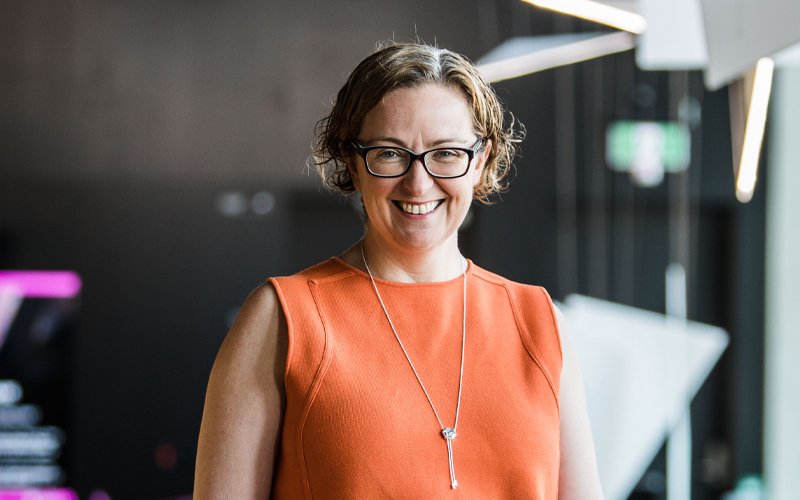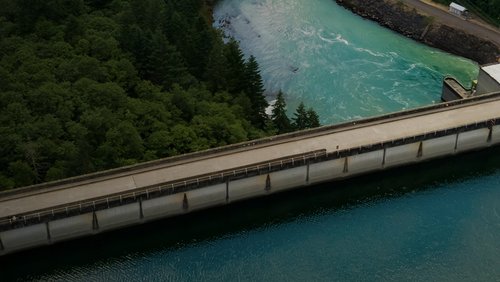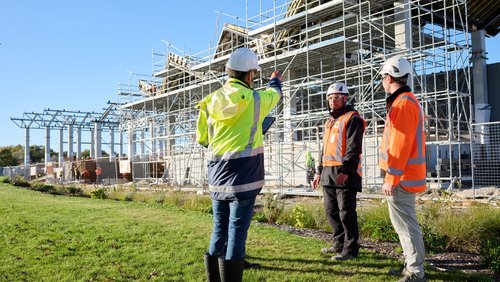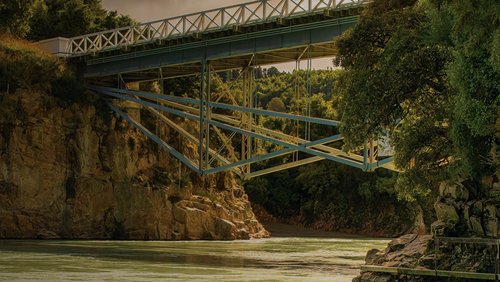6 Mar 2023
For many of us, imagining the future is fraught with such complexity it can be an overwhelming exercise laden with our own life experiences and biases. But for futurist and engineer Dr Kristin Alford, it’s a discipline where she can utilise her multifaceted background to interrogate, and help others plan for, possible futures.
“Futures thinking sits at the intersection of design and strategy,” says Dr Kristin Alford. “It's related to strategy, because you’re trying to anticipate future opportunities and look at how to bring those into the present, but it’s also related to design, because we’re thinking about how to create and work within constraints.”
With degrees in mineral processing engineering, philosophy and management, and her eclectic career in education, human resources, strategy and communications, Kristin led the vision, design, and delivery of the University of South Australia’s Museum of Discovery (MOD). It’s Australia’s first future-focused museum, and she is its inaugural Director. The museum aims to provoke new ideas at the intersection of science, art and innovation, acknowledging that STEM subjects – science, technology, engineering and mathematics – will be intrinsic to many jobs in the future.
“My particular interest is in helping to build people’s capability to do future thinking better. Our aim is to inspire young adults to be able to navigate not only their personal career futures, but also the type of world that they are moving into and creating.”
Kristin says moving from engineering to museums was a natural progression.
“It’s all about using processes and frameworks to engage people in ideas, thinking about inputs, outputs, change and transformation. And from my experience in people management, strategy and science communications, I’m focused on how to land some of those concepts with an audience and engage people in the ideas.”
Futuristic thinking is vital for the engineering profession, she says.

Image: Dr Kristin Alford
“Engineers are literally building the future, whether they’re creating processes that bring materials to life or designing buildings. It’s very important engineers are thinking about the types of impacts their work is going to have.”
Circumstances, however, often prevent such foresight.
“If you’re in an engineering firm or in government, you’ve got pressure to deliver, and to deliver now. You don’t always have a community understanding why you might be talking about something that’s 20 years down the track.”
Does she recommend engineering firms engage a foresight consultant?
“I know a lot of construction companies that have active foresight units within them, to ensure buildings will be as fit for purpose in 40 years as they are today. There’s also an appetite for better future thinking in some of the resource companies, because as we phase out coal, we are looking at greater electrification and renewables and need to look ahead.”
She says future thinking is very important if you’re dealing with natural systems, such as forestry, where there are long-term impacts from the decisions that engineers are making today.
Engineers are literally building the future, whether they’re creating processes that bring materials to life or designing buildings.
“We’ve seen rapid change in the past 10 years. So, what might the next 10 to 20 years look like? How do we make sure that our decisions are robust and going to last?”
She says: “By thinking through possibility, we can better anticipate disruption and we’ve got a better set of tools to be able to respond to disruption.”
In September, Kristin will address the 19th International Conference of Women Engineers and Scientists (ICWES19), discussing the future of work in science and technology, and the factors to consider as we seek to discover and develop innovative solutions. She sees huge value in women in STEM disciplines coming together to create large global networks.
“There’s enormous power in that, and in the shared experience.”
But she is also exasperated that the circumstances for women in STEM disciplines remains challenging.
“Women in STEM often end up working to increase diversity and not doing the actual STEM work. But it’s not a women’s problem, it’s a men’s problem – it’s the system that needs to change. When you see better diversity in certain organisations, it’s because it is treated as a priority, as something that’s actually going to drive business and sustainability.”
Kristin says: “I graduated 30 years ago but haven’t really seen the needle move. I’m still answering the same questions.”
She says the profession needs engineers who have global mindsets and who are as interested in complexity and in social and ethical issues as they are in the maths and science.
“Young women often have high marks across a wide variety of subjects and might need a little bit more of encouragement to think about engineering, because they have a lot of choice. We need these types of people in the discipline.”
So as a professional futurist, what’s her main concern?
“It’s our inability to act fast on climate. For example, we’re worried about the immediate effects on people if we transition out of coal. But the effects on people in 10 years’ time are going to be horrendous if we don’t do it. We just don’t seem to be able to grasp that.”
She says to manage climate, a new system of capitalism is required.
“I’m a big fan of Kate Raworth and doughnut economics and thinking about how we live within our biophysical systems because that addresses all of those sustainable development goals and reorganises the way we think about value and money.”
What hope does she see?
“We recently did a workshop with MOD visitors and stakeholders and everybody said how broken everything is, the education system, capitalism and democracy, all seem broken.
“We're experiencing more viscerally that the system isn’t in service to us as humans. But there seems to be some thinking about regenerative economics and I think that is a really bright spark for the future.”
This article was first published in the March 2023 issue of EG magazine.




